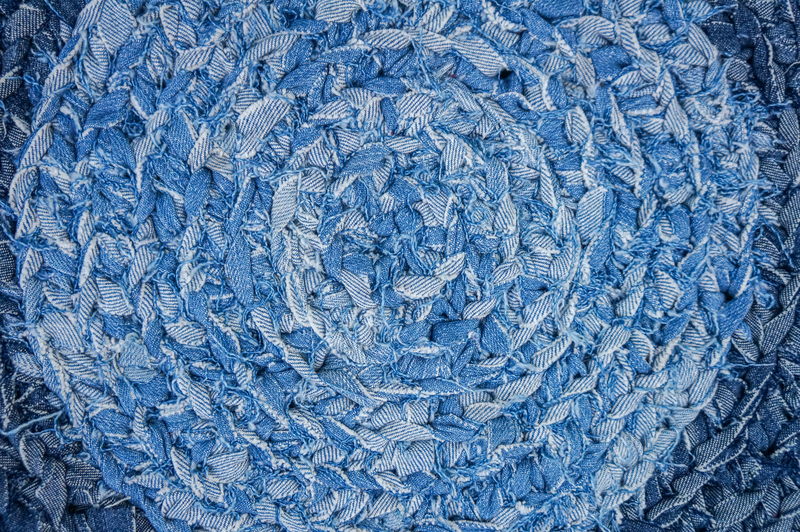Easy Steps for Responsible PPE Waste Disposal in Your Community
In today's world, PPE waste disposal is more important than ever. As communities worldwide strive to manage and minimize the environmental impact of personal protective equipment (PPE), it's crucial for every individual to know the right steps for responsible PPE waste management. Not only does responsible disposal keep our neighborhoods cleaner, but it also safeguards public health and the planet. This in-depth guide offers comprehensive, easy-to-follow steps for responsible PPE disposal in your community--empowering you with the knowledge you need to make a real difference.
Understanding PPE and Its Environmental Impact
Personal Protective Equipment (PPE) includes items like face masks, gloves, face shields, and gowns that are designed to help protect individuals from infectious diseases or hazardous substances. While essential for safety, PPE waste can pose serious environmental threats when not disposed of correctly. Improperly discarded masks or gloves are now a common sight in streets, parks, and waterways, contributing to pollution and risking wildlife health.
Why Is Responsible PPE Disposal Important?
- Environmental Protection: Proper disposal prevents PPE waste from entering waterways and ecosystems, where it can harm wildlife and pollute natural habitats.
- Health and Safety: Disposing of used PPE responsibly reduces the risk of spreading infectious diseases and exposure to hazardous materials.
- Community Aesthetics: Keeping public spaces free of littered PPE enhances the beauty and cleanliness of your community.
- Waste Management: Correctly handling PPE waste helps local waste management services operate more efficiently and safely.

Step-by-Step Guide: How to Dispose of PPE Waste Responsibly
If you want to make a positive impact in your community, follow these easy steps for PPE waste disposal and encourage others to adopt similar practices.
1. Separate Your PPE Waste from Regular Garbage
- Do not mix: Always separate personal protective waste (masks, gloves, face shields, etc.) from regular household trash to prevent cross-contamination.
- Use a designated bag: Place all used PPE items in a separate, sturdy plastic bag that is clearly marked.
2. Bag PPE Waste Securely
Used PPE may carry germs or other contaminants. Follow these tips for safe and secure bagging:
- Double-bag: After placing PPE in a plastic bag, tie it securely. Place this bag inside another bag for added security.
- Seal tightly: Ensure the bags are well-sealed to prevent leaks or accidental spills.
3. Dispose of Bagged PPE Waste Properly
Different localities have different disposal requirements for PPE items. Check with your local waste management authority for specific guidelines in your region, but these general tips usually apply:
- Household PPE waste: Dispose of securely-bagged PPE in your regular trash (not in recycling bins).
- PPE from infected persons: If someone in your home has or is suspected of having an infectious disease, follow additional guidelines provided by local health authorities, as extra precautions may be required.
- Never flush PPE: Do not dispose of face masks, gloves, or other PPE items in toilets or sinks, as this can clog plumbing and harm water systems.
4. Do Not Recycle Single-Use PPE
*Single-use PPE such as disposable masks and gloves cannot be recycled through standard curbside recycling programs.* These materials likely contain contaminants and are made of mixed materials that recycling facilities are not equipped to process.
- Never: Place used masks, gloves, or other PPE in your recycling bin.
- Check for special programs: Some communities or private companies offer take-back or recycling programs specifically designed for PPE waste. Always look for these in your area.
5. Avoid Littering: Keep Your Community Clean
- Carry a bag: If you're out and about, carry a small plastic bag to store used PPE until you can dispose of it responsibly.
- Lead by example: Encourage others to pick up after themselves, and consider organizing a community clean-up to remove littered PPE from parks, sidewalks, or beaches.
6. Wash Your Hands After Handling PPE Waste
Safeguard your personal health. Immediately after handling and disposing of PPE waste:
- Wash your hands: Use soap and water for at least 20 seconds, or use a hand sanitizer containing at least 60% alcohol.
- Avoid touching your face: This minimizes the risk of potential self-contamination.
Special Considerations for Community Leaders & Organizations
1. Install Dedicated PPE Disposal Bins
- Place clearly marked PPE waste bins in public spaces such as parks, bus stops, schools, and hospitals.
- Ensure bins are lined with sturdy plastic bags, regularly emptied, and cleaned to minimize health hazards.
2. Educate the Community on Responsible PPE Waste Disposal
- Distribute flyers and posters: Place educational materials in key public areas explaining the importance of proper PPE disposal.
- Social media campaigns: Use community websites and social media to share tips, reminders, and local collection points for PPE waste.
- Host workshops: Organize events, either virtual or in-person, to demonstrate safe disposal and discuss the impact of improper PPE waste practices.
3. Collaborate with Local Waste Management Services
- Coordinate collection: Work with waste management professionals to establish reliable collection, transfer, and disposal of PPE waste.
- Ensure proper handling: Equip staff with PPE and training on how to handle and process PPE waste safely.
Frequently Asked Questions About PPE Waste Disposal
Q: Can disposable masks and gloves be recycled?
No, most disposable PPE items are made from specialized plastics and fibers that cannot be recycled through traditional methods. Placing PPE in recycling bins can contaminate the recyclable stream.
Q: Are there eco-friendly alternatives to single-use PPE?
Yes! Consider washable cloth face masks or reusable gowns where appropriate. Always follow public health guidelines to ensure reusable PPE remains safe and effective.
Q: Is there a risk of spreading germs through PPE waste?
Improperly handled PPE waste could transmit germs, especially if contaminated by an infected person. That's why secure bagging and immediate handwashing are crucial.
Q: How often should community PPE bins be emptied?
Ideally, public PPE waste bins should be checked and emptied daily to minimize overflow and health risks.
Eco-Friendly Innovations in PPE Waste Management
The surge in PPE waste has inspired innovative solutions to minimize environmental harm. Some forward-thinking organizations are experimenting with:
- Specialized PPE recycling: Certain companies now collect used masks and gloves for advanced recycling or energy recovery.
- Biodegradable options: Researchers are developing biodegradable masks and gloves to ease the waste burden.
- Reusable PPE: Investing in reusable equipment for non-medical settings reduces single-use waste significantly.
Check with your local government or environmental groups to see if similar initiatives are available in your area, and always support eco-conscious PPE disposal whenever possible.

Getting Involved: How You Can Make a Difference
- Set an example: Practice responsible PPE waste disposal every day--at home, at work, and in public spaces.
- Share knowledge: Inform your friends, family, and neighbors about the importance of proper PPE waste handling.
- Volunteer: Join or organize clean-up events to help remove discarded PPE from your neighborhood.
- Advocate: Encourage local businesses, schools, and government to provide dedicated PPE disposal options and promote green alternatives.
Conclusion: Take Simple Steps for a Cleaner, Safer Community
Responsible PPE waste disposal is an essential habit that benefits your community and the planet. By following these easy steps for proper PPE disposal, you not only help prevent the spread of disease, but also protect the environment from pollution and wildlife threats. Start today:
- Separate and securely bag your PPE waste,
- Never recycle or flush single-use PPE,
- Wash your hands after handling,
- Encourage your community to do the same.
By spreading awareness and taking action, you play a crucial role in building a healthier, more sustainable world. Responsible PPE waste disposal is simple, effective, and within everyone's reach--let's work together to make our communities cleaner and safer for all.
Remember: Every small action adds up to big change!
For more tips on community health, safety, and responsible waste management, subscribe to our newsletter and join the conversation online.